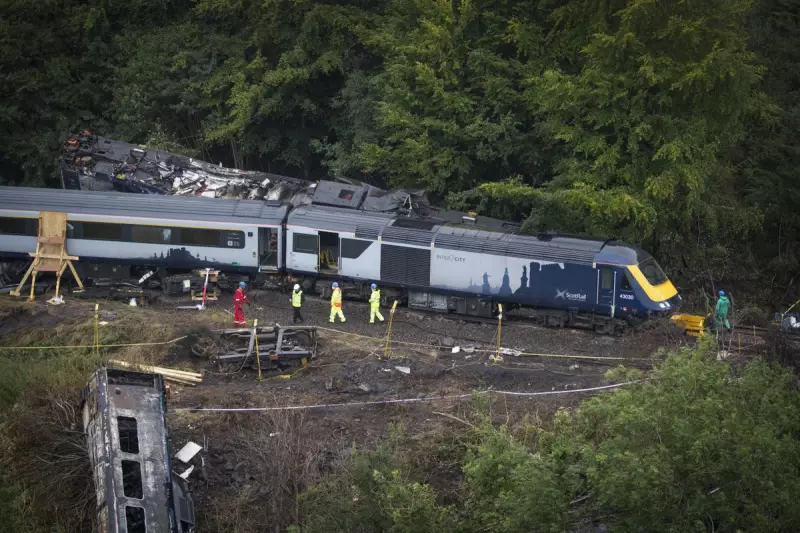
Network Rail has been ordered to pay a £6.7 million penalty after admitting serious health and safety failures that contributed to the devastating Stonehaven train derailment in August 2020. The sentence was delivered at the High Court in Glasgow, bringing a sombre close to a legal process following the tragedy that claimed the lives of the train's driver, conductor, and one passenger.
The fatal incident occurred when a ScotRail service, travelling from Aberdeen to Glasgow, derailed after striking a landslide that had fallen onto the tracks near Carmont, Aberdeenshire. The area had been battered by heavy rainfall from Storm Frank, which had triggered a series of landslips.
A Cascade of Failures in Extreme Weather
The court heard how a sequence of failures led to the disaster. A drainage ditch, which was crucial for channeling water away from the railway line, had become blocked by a build-up of rock and gravel following earlier repair work carried out by the now-defunct construction firm Carillion.
On the morning of the accident, an intense thunderstorm swept across the region. The blocked drain could not cope with the deluge, causing water to overflow and wash material onto the tracks. Just minutes before the fatal service passed, another landslip was reported further up the line. Despite this critical warning, the doomed train was not stopped in time.
Network Rail's Admission of Guilt
Network Rail pleaded guilty to a charge under the Health and Safety at Work Act, admitting it had failed to ensure the safety of its employees and passengers. The judge, Lord Matthews, stated that the fine would have been significantly higher at £10 million had it not been for the company's early guilty plea.
In addition to the financial penalty, the judge emphasised the profound human cost of the institutional failures, noting the "lasting and devastating impact" on the families of the victims.
The Aftermath and Industry-Wide Changes
The Stonehaven disaster was the deadliest train accident in the UK for nearly 14 years and prompted a major review of railway safety management, particularly concerning the impact of extreme weather exacerbated by climate change.
In the wake of the tragedy, Network Rail has implemented a new "extreme weather action team" and has invested in improved weather forecasting technology and infrastructure resilience. The company's lawyer expressed its "deep regret" and apologies for its shortcomings, acknowledging that the event was a "defining moment" for the organisation.
While the sentencing provides legal closure, it serves as a stark and permanent reminder of the critical importance of robust safety protocols and infrastructure maintenance on the UK's rail network.





